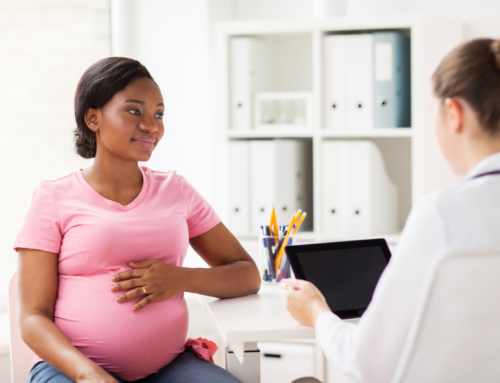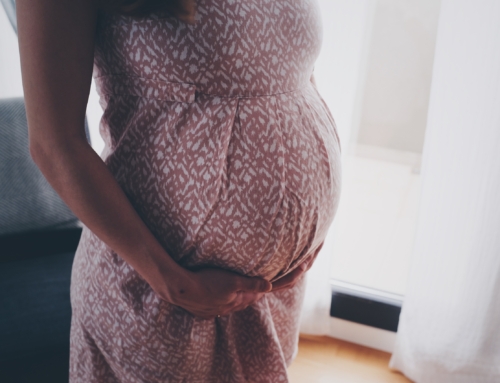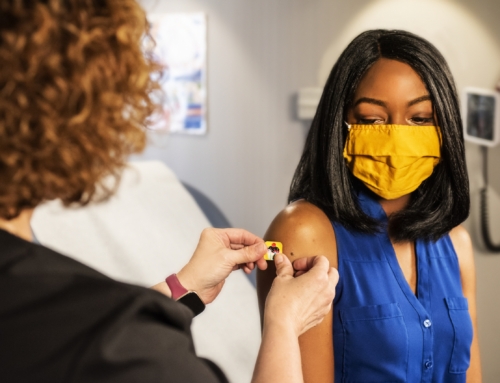Summer is upon us, and many businesses are beginning to reopen—albeit with important safety protocols. However, Covid-19 infections are continuing to rise and it’s imperative that surrogates take extra precautions during this period.
The CDC notes that pregnant women experience immunologic changes and are more susceptible to severe illness from respiratory infection. Unfortunately, pregnant women are more at risk for hospitalization, ICU admittance, and mechanical ventilator interventions.
Given these increased risks, experts have recommended the following precautions for pregnant women during the coronavirus:
1. Wear a face covering when you go out in the community
The best way to stay safe is to stay home as much as possible.
When you do go out in the community, wear a cloth face covering that completely covers your mouth and nose. This covering provides a simple barrier that prevents respiratory droplets from traveling into the air and onto other people.
There is a growing body of evidence from clinic and laboratory studies which suggests that, when worn properly (completely covering the nose and mouth), cloth face coverings can help reduce the spray of droplets, which in turn reduces the risk of spreading Covid-19 to others.
Note that cloth face coverings should NOT be worn by children 2 and under or anyone who has trouble breathing or is unable to remove the mask without assistance.
2. Practice social distancing
Try to limit face-to-face interactions as much as possible with people who don’t live with you. When you are in public settings, remain six feet apart from anyone who isn’t in your household (and wear a face covering).
It’s especially critical to avoid situations where you are in enclosed spaces with people who don’t live with you. The riskiest situation to find yourself in would be a crowded indoor space with poor ventilation filled with people talking, shouting, or singing. An indoor space with few people and open windows is less risky, but still not 100% safe.
The best way to stay safe in public is to stay outdoors as much as possible, maintain a distance of at least six feet from people who aren’t in your household, and of course, keep your face covering on.
3. Practice good hand hygiene
Wash your hands frequently with soap and water for at least 20 seconds. Avoid touching your face, particularly your eyes, nose, and mouth.
Hand-washing is especially important:
- After touching other people, including children
- After touching surfaces outside your home
- After touching items brought into your home from outside
- After blowing your nose, sneezing, or coughing
- After touching dirty laundry
- Before preparing food or eating
- Before breastfeeding or expressing milk
If soap and water aren’t available, use an alcohol-based hand sanitizer with at least 60% alcohol.
4. Clean and disinfect commonly touched surfaces
The WHO recommends regularly cleaning and disinfecting commonly touched surfaces such as door handles, countertops, bathroom surfaces, kitchen and food preparation areas, toilets and faucets, touchscreen personal devices, keyboards, and work surfaces.
When using disinfectants, make sure to follow the instructions carefully.
5. Launder safely
Wash garments using the warmest water possible according to the label or instructions, and dry them completely, if possible. If someone in your household is sick, their laundry can be washed with other people’s items, but make sure you wash your hands after touching the dirty laundry.
6. Stock up on essential items
During the coronavirus pandemic, it’s a good idea to have essential items on hand. Consider having at least a two-week supply of medications, non-perishable foods, water and electrolyte-based liquids, pet food, cleaning supplies, basic toiletries, diapers, and anything else that would be necessary if you had to stay in for a couple weeks.
7. Don’t skip your prenatal care appointments
Some pregnant women are concerned about exposure to coronavirus at their doctor’s appointments. However, it’s still very important to receive prenatal care during this time.
Many prenatal care providers have made changes to protect the health of patients and staff, including spacing out appointments and condensing visits to limit the amount of time you’re there. Some healthcare providers are offering telemedicine, or appointments by phone or video.
When you visit your doctor, make sure to wear a mask, try not to touch your face after touching any surfaces, and keep your distance from anyone who appears to be sick. If you’re worried about attending your appointment, talk to your healthcare provider.
Following these precautions will not only help surrogates stay healthy during Covid-19, but it will also give the intended parents some peace of mind in knowing that the surrogate is taking care of herself to the best of her ability.
As always, be sure to talk to your doctors about the best ways to stay healthy.
Learn More About Becoming a Surrogate with Surrogate Parenting Services
Surrogate Parenting Services is proud to celebrate 30 Years of helping to bring dreams to life! Founded in 1990, Surrogate Parenting Services (SPS) is a full-service surrogacy program that offers both parties an exceptionally supportive environment throughout the surrogacy relationship. We’re passionate about creating ideal matches between surrogates and intended parents, so the journey is fulfilling for both sides and the future child is brought into this world in the best possible circumstances.
Learn more about our Surrogacy Program online or by calling (949) 363-9525.










Keep In Touch